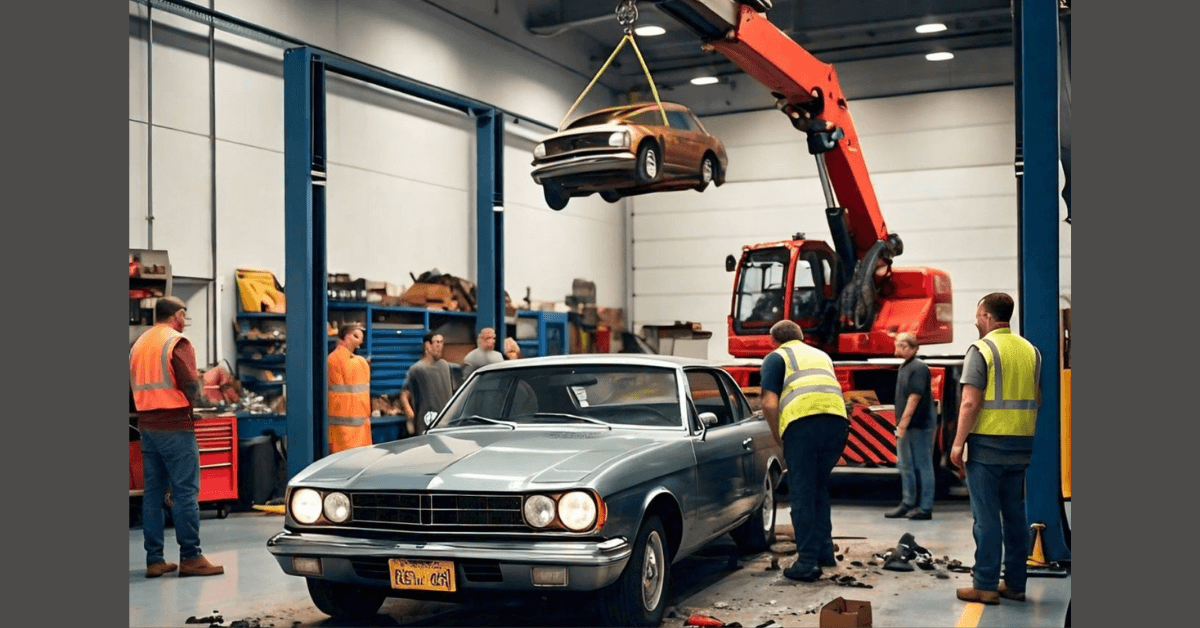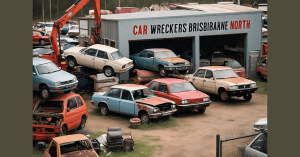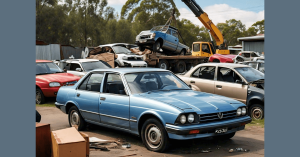Disposing an old car can often feel daunting, filled with paperwork, phone calls, and endless headaches. But it doesn’t have to be that way. A hassle-free car disposal process saves you time and energy and ensures that your old vehicle is disposed of responsibly and profitably. In this article, we’ll walk you through everything you need to know to achieve a seamless car disposal experience.
Understanding Car Disposal
What is a Car Disposal?
Car disposal refers to removing an old, unwanted, or non-functional vehicle. This can be done through various means, such as selling to a junkyard, donating to charity, recycling, or trading it in.
Common Reasons for Car Disposal
People dispose of their cars for numerous reasons. It could be due to the car no longer running efficiently, high repair costs, upgrading to a new vehicle, or simply wanting to clear space. Whatever your reason, understanding your options can make the process much smoother.
The Benefits of Hassle-Free Car Disposal
Environmental Benefits
Disposing of your car responsibly ensures that harmful substances and materials are correctly handled, reducing environmental pollution. Recycling parts and materials also contribute to conserving natural resources.
Financial Benefits
You can get financial returns from your old car depending on your chosen method. Selling it to a junkyard, trading it in, or even getting tax deductions from donating it can all offer monetary benefits.
Convenience and Time-Saving
A hassle-free car disposal process relieves the stress of dealing with complicated procedures and multiple parties. Streamlined services can handle most of the work, from paperwork to pickup.
Preparing Your Car for Disposal
Gather Necessary Documents
Ensure you have all the necessary documents, including the title, registration, and service records. These documents are crucial for legal transfer and can help assess the car’s value.
Remove Personal Belongings
Check every nook and cranny of your car for personal belongings. It’s easy to overlook items, especially in the glove compartment, trunk, and under the seats.
Cancel Insurance and Registration
Before finalizing the disposal, cancel your car insurance to avoid unnecessary charges. Also, inform your local DMV to cancel the registration to prevent future liabilities.
Options for Car Disposal
Selling to a Junkyard
Junkyards buy old cars primarily for parts and scrap metal. This can be a quick way to get rid of your vehicle, especially if it’s no longer running.
Donating the Car
Many charitable organizations accept car donations. This not only helps a good cause but can also provide you with a tax deduction.
Recycling Services
Recycling your car ensures that it is disposed of in an environmentally friendly manner. Specialized companies can handle the dismantling and recycling process.
Trade-In Programs
Car dealerships often offer trade-in programs where you can exchange your old car for credit toward a new purchase. This can be convenient if you’re planning to buy another vehicle.
Choosing the Right Disposal Method
Evaluating Your Car’s Condition
Assess the condition of your car to determine the most suitable disposal method. If it’s in good condition, selling or trading in might be the best option. For non-functional cars, recycling or donating might be better.
Considering Your Time and Effort
Some methods, like selling to a junkyard, are relatively quick and easy, while others, like private sales, might require more time and effort. Choose based on how much time you can invest.
Financial Implications
Weigh the financial benefits of each option. Selling or trading in might offer immediate cash, while donating could provide tax benefits. Recycling might offer a smaller return, but it is the most eco-friendly.
Steps to Sell Your Car to a Junkyard
Finding a Reputable Junkyard
Research and find a reputable junkyard with good reviews. This ensures you get a fair price and reliable service.
Getting a Quote
Contact the junkyard to get a quote. Be ready to provide details about the car’s make, model, condition, and missing parts.
Negotiating the Price
Don’t hesitate to negotiate. Junkyards expect it and might offer a better deal if you ask.
Completing the Sale
Once you agree on a price, finalize the sale by signing over the title and completing any necessary paperwork. Ensure you receive payment as agreed.
FAQs
You’ll need the title, registration, and service records. These are crucial for legal transfer and assessing the car’s value.
It depends on local regulations. In most cases, you’ll need a title, but some states offer alternative options like a bill of sale or affidavit.
The amount varies based on the car’s condition, age, and the car disposal method. Junkyards might offer less, while private sales or trade-ins can provide more.
Research reputable charities that accept car donations. Popular options include Habitat for Humanity, Goodwill, and the American Red Cross.
Yes, car recycling minimizes waste, conserves resources, and reduces pollution. It ensures harmful chemicals are disposed of safely, benefiting the environment.
Conclusion
Disposing of an old car doesn’t have to be a stressful ordeal. Understanding your options and preparing accordingly can ensure a smooth and hassle-free Car Disposal process. Whether you sell, donate, recycle, or trade in your vehicle, each method has its benefits. Consider your car’s condition, time, and potential financial return to make the best decision. Remember, responsible car disposal not only benefits you but also the environment.








